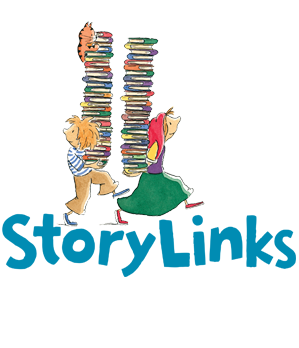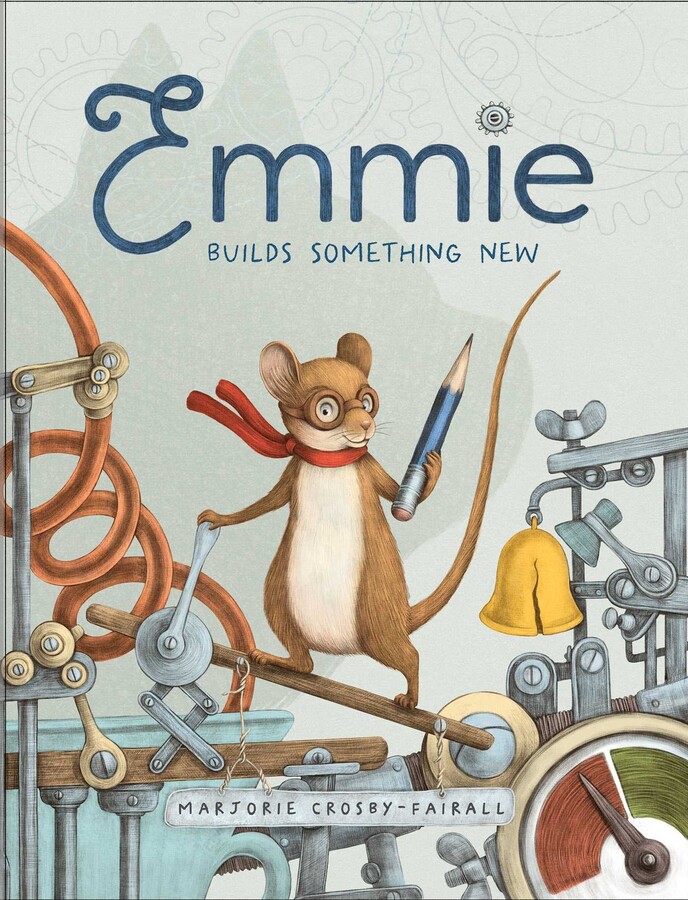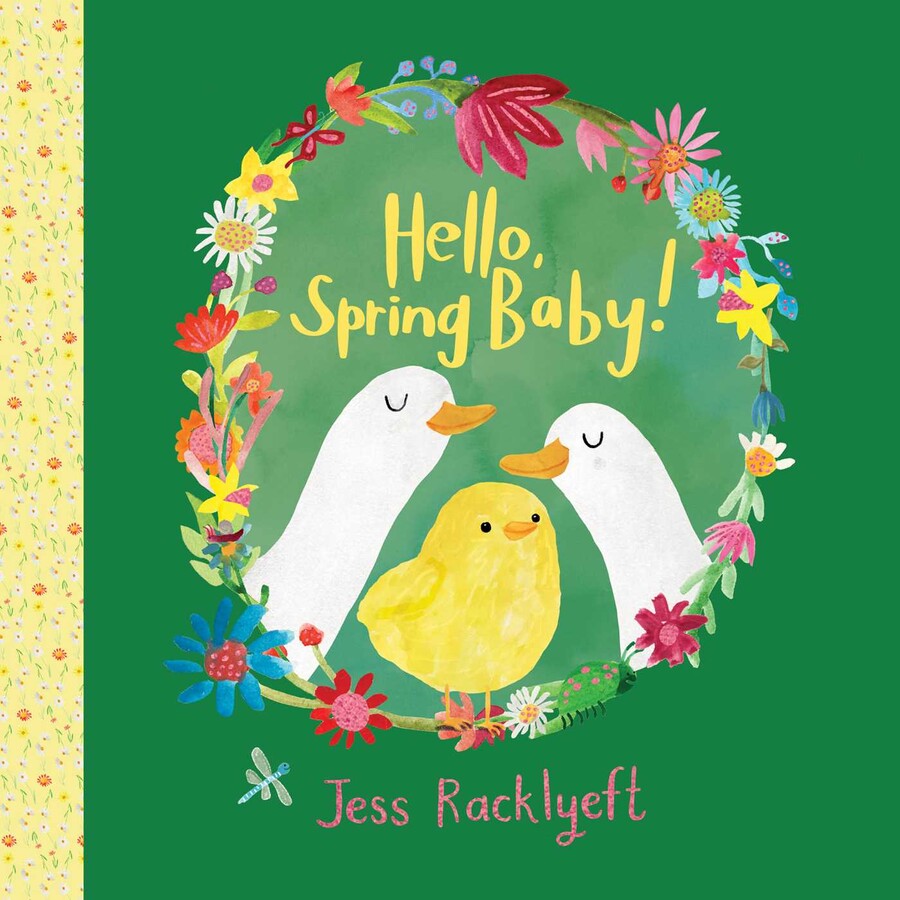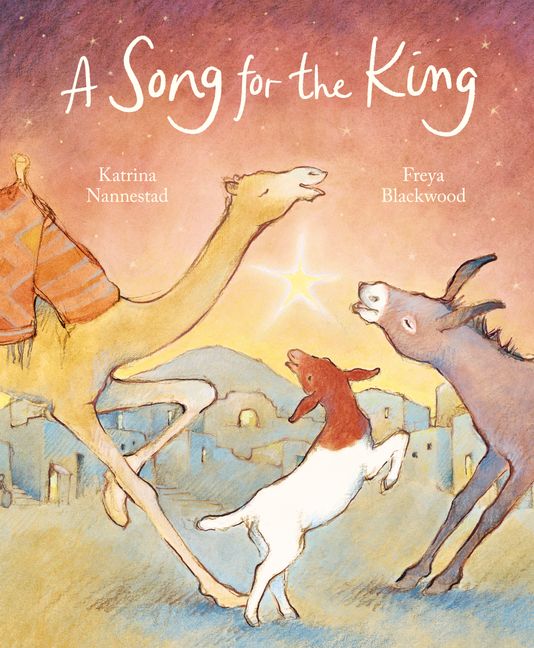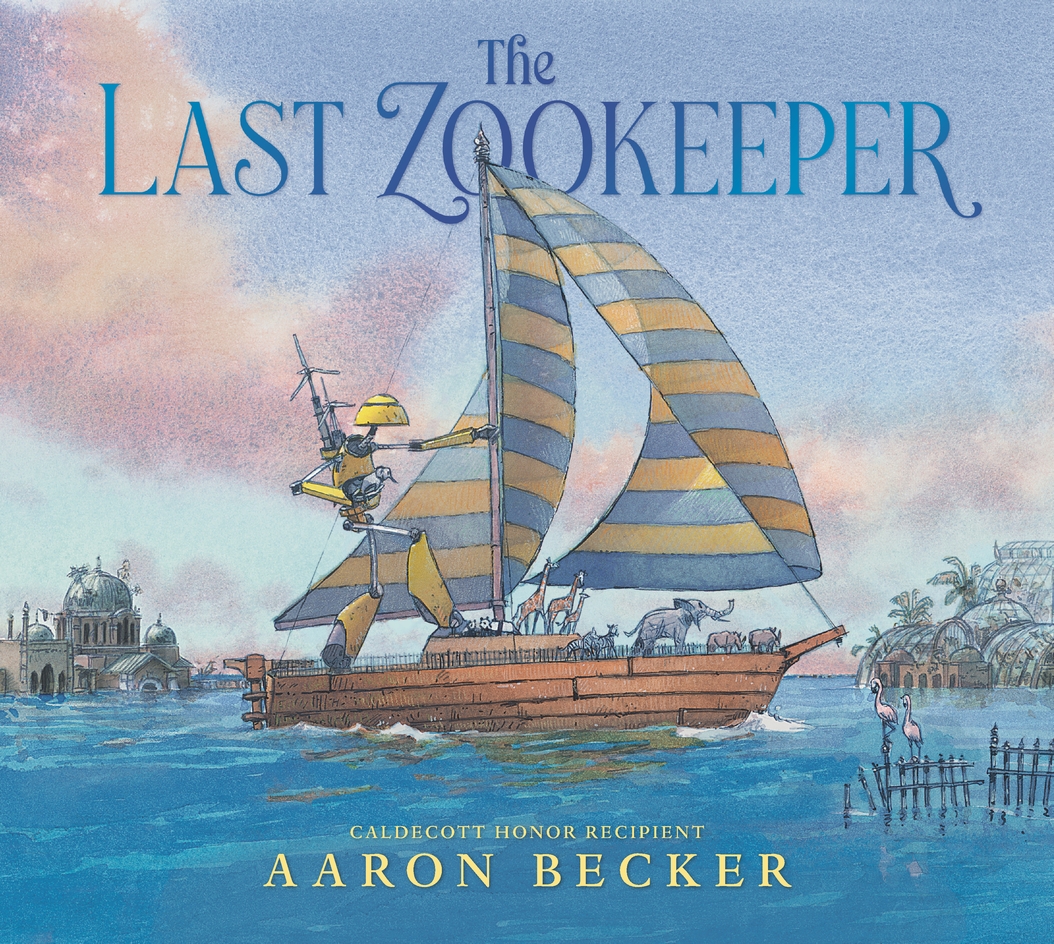
The Last Zookeeper
By Aaron Becker
Reviewed by Barbara Braxton
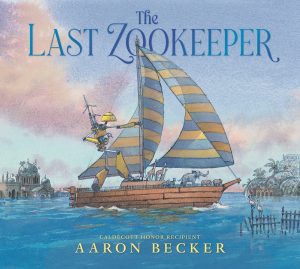 In a not-so-futuristic time, the Earth has flooded and the waters continue to rise. The only signs of humankind are the waterlogged structures they left behind. Peeking out from the deluge are the remnants of a zoo, home to rare and endangered animals like elephants. giraffes, tigers, pandas and rhinoceroses, who have hung on and clung on despite everything.
In a not-so-futuristic time, the Earth has flooded and the waters continue to rise. The only signs of humankind are the waterlogged structures they left behind. Peeking out from the deluge are the remnants of a zoo, home to rare and endangered animals like elephants. giraffes, tigers, pandas and rhinoceroses, who have hung on and clung on despite everything.
Tender-hearted NOA is a huge construction robot who has found a new mission as the caretaker of the zoo’s beleaguered inhabitants, and despite towering above them, they trust him. Bracing for the next storm, NOA builds an ark from the wreckage around him and together they go in search of new land, only to almost perish as that anticipated storm hits while they are at sea. But then something miraculous arrives, and NOA not only discovers sanctuary for those he has saved, but something even more profound…
Described by the publisher as a “luminous sci-fi parable for our changing world”, the only words in this masterpiece are a quote from primatologist and anthropologist Dr Jane Goodall,..
Only if we understand, can we care.
Only if we care, will we help.
Only if we help, shall all be saved.
But within the illustrations is a powerful story that is a parallel to the biblical story and which offers so many riches to explore, particularly by those who are so well aware of the need to protect and preserve the environment and the prospect of the impact of climate change.
So while younger readers may interpret this as a futuristic retelling of Noah and his ark, more sophisticated readers will bring all their own existing knowledge and experiences to tell their own tale as they examine the details embedded in the illustrations creating a unique, very personal story unimpeded by the text of another. And while it may seem to be a story of gloom and doom that could be depressing, there is a twist that references the other biblical story of the Garden of Eden that offers hope that perhaps not all is lost in the post-apocalyptic world…
Reviews of this amazing work abound and each suggests a new aspect, element or interpretation that could be explored including discovering Becker’s other work, The Tree and the River, which is a “time-lapse portrait of humankind – and our impact on the natural world”, making both of these core texts for older readers who, having asked what-if now want to consider what-next.
So while most are touting it as suitable for ages 4-7, to me this is one for older readers who have an understanding of the current environmental uncertainty and who can bring that, as well as their knowledge of the biblical stories and the universal human need for hope to the table so they can really appreciate the beauty and value of Becker’s work.
Walker Books, 2024
Aaron Becker
Reprinted with permission The Bottom Shelf

